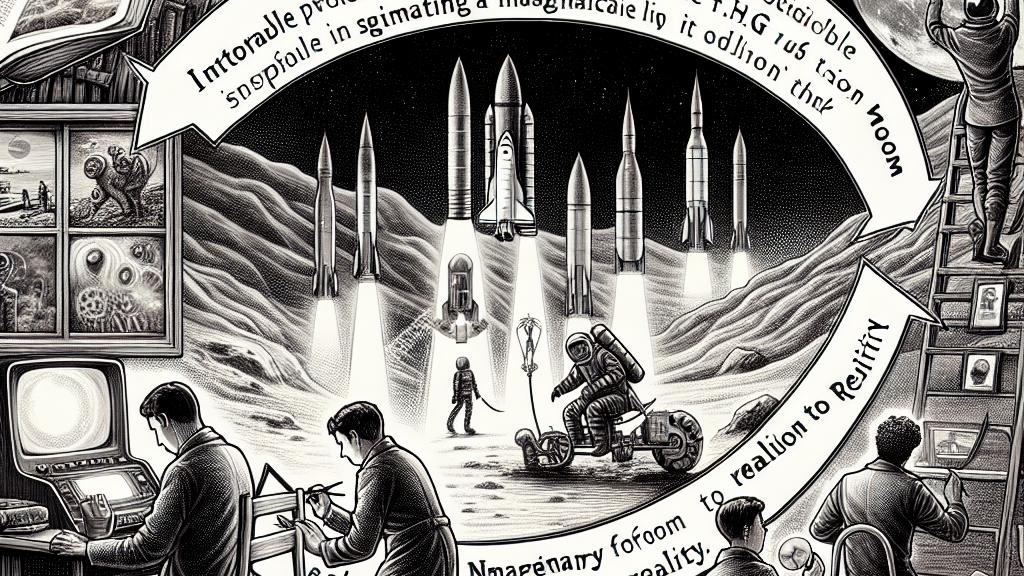The Sci-Fi Feedback Loop: How Fiction Fuels Scientific Innovation
Overview
- Science fiction and real-world science inspire each other through a dynamic feedback loop.
- Historical connections highlight the profound influence of sci-fi on technological breakthroughs.
- This interplay shapes narratives and drives ongoing advancements in various fields.

The Concept of the Sci-Fi Feedback Loop
The 'sci-fi feedback loop' is a fascinating concept that illustrates how science fiction stories spark real-world scientific advancements and innovations. This relationship can be traced back to classic authors like Jules Verne and H.G. Wells, whose visionary works ignited the imagination of early rocket scientists such as Robert Goddard and Wernher von Braun. For instance, Verne's 'From the Earth to the Moon' paved the way for real-life moon missions, culminating in the historic Apollo 11 landing. This demonstrates that fiction is not just entertainment; it can motivate people to turn dreams into tangible realities, bridging the gap between imagination and innovation.
Real-World Applications of Sci-Fi Inspiration
Today, the influence of science fiction is evident in the technologies we encounter daily. For example, Neal Stephenson's 'Snow Crash' introduced the concept of the 'metaverse,' which has propelled large-scale developments in virtual reality platforms like 'Second Life' and contemporary discussions around augmented reality. Furthermore, devices like smartphones were inspired by the communicators seen in 'Star Trek', showcasing how earlier sci-fi concepts have become integral to modern communication. The evolution of AI, particularly in applications like OpenAI's ChatGPT, mirrors the emotional and conversational dynamics explored in films like 'Her,' reflecting how fiction continually shapes public expectations and inspires technological advancement.
Cultural Significance and Societal Impact
The sci-fi feedback loop also carries significant cultural implications, influencing how society perceives emerging technologies. As futuristic concepts become mainstream, public understanding of technology is often shaped by imaginative narratives. For instance, the widespread portrayal of autonomous vehicles in popular media not only informs public perception but also prompts ethical debates surrounding automation’s role in everyday life. As storytelling continues to intertwine with scientific progress, the cultural dialogue evolves, encouraging acceptance and a better understanding of new technologies. This synergy ultimately fosters a society that is more adaptable and open to the innovations of tomorrow.
Future Prospects of the Sci-Fi Feedback Loop
Looking ahead, the sci-fi feedback loop promises to play a pivotal role in defining the trajectory of future technological advancements. As writers and creators become increasingly aware of their impact on innovation, new narratives will emerge that explore previously unimagined concepts. Topics like climate change, space colonization, and ethical AI are ripe for exploration in both fiction and reality. By harnessing the curiosity and creativity of science fiction, we can inspire not only new technologies but also encourage public discourse and thoughtful consideration of the implications these advancements may have on society. Thus, the feedback loop will continue to be a critical element in bridging the imaginative and the feasible.

Loading...